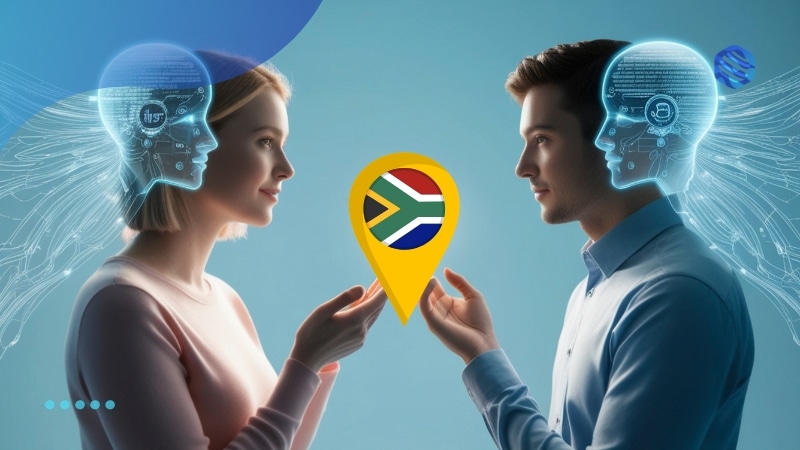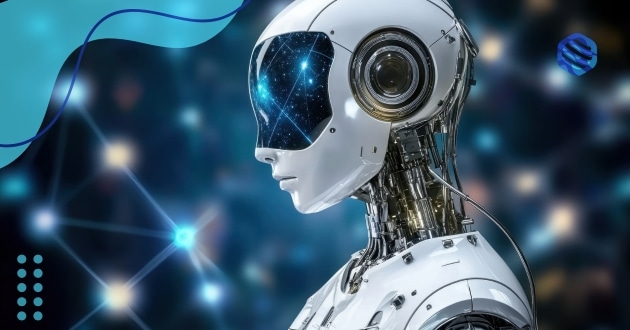The Future of Artificial Intelligence is shaping conversations across the globe, and South Africa is not staying behind. From financial institutions to agriculture and education, AI is transforming industries and redefining how society operates. The future of artificial intelligence represents not just technological innovation but also a shift in how humans interact with data, decision-making, and opportunity.
As the future of artificial intelligence unfolds, South Africa finds itself at a unique crossroads: full of potential, yet facing challenges like limited digital infrastructure and a growing skills gap. Still, with the right investment and governance, AI can become the engine driving economic growth, job creation, and inclusive progress.
In this article, we explore how AI is being adopted locally, what social and ethical effects it brings, and which opportunities lie ahead for a country eager to lead Africa’s digital transformation. Let’s dive into the most valuable insights about the future of artificial intelligence that go beyond the headlines.
AI Adoption and Innovation in South Africa

The future of artificial intelligence is no longer a distant dream, it’s already underway. South Africa’s AI market was valued at USD 809 million in 2024 and is projected to surpass USD 6 billion by 2033, reflecting a robust 22 % annual growth rate. This explosive rise is driven by companies adopting AI to streamline operations, predict consumer behaviour, and enhance decision-making.
Industries such as finance, agriculture, and healthcare are embracing tailored AI models designed for local challenges. Banks are using machine learning to detect fraud in real time, farmers are optimising irrigation through predictive analytics; and hospitals are leveraging algorithms for faster diagnostics. These innovations show that AI is no longer a luxury, it’s an operational necessity.
However, growth is constrained by a severe skills shortage. Nearly 78 % of South African organisations say AI skills are a top priority. Yet they struggle to recruit qualified professionals. To sustain innovation, investment in digital education and local tech talent is crucial. The future of artificial intelligence depends not only on machines but also on people capable of shaping and maintaining them.
Ethical, Social and Economic Impacts
The future of artificial intelligence is not just about code, it’s about people. South Africans view AI with a mix of hope and hesitation. Surveys reveal that 43 % expect better healthcare and 41 % foresee more leisure time thanks to automation. Yet 70 % worry about potential job losses. This dual sentiment captures the paradox of progress: innovation can empower or exclude, depending on how it’s managed.
On the ethical front, transparency, bias, and data protection have become critical talking points. As AI decisions influence who gets loans, jobs, or medical treatment, ensuring fairness and accountability becomes essential. African societies, still marked by inequality, must design policies that guarantee inclusion while fostering innovation.
Economically, AI could boost South Africa’s productivity and competitiveness. Studies indicate that companies integrating AI tools report higher revenue per employee and faster innovation cycles. But without education reform, infrastructure development, and regulatory clarity, these benefits may remain unevenly distributed, reinforcing rather than reducing inequality.
he topic of The Future of Artificial Intelligence is heavily debated across different sectors. Official entities and major organizations are focusing on how to responsibly develop and govern this powerful technology. For example, the Google AI initiative outlines its principles for building and deploying AI safely, emphasizing ethical development and broad accessibility.
Similarly, the Future of Life Institute is a leading non-profit focused on mitigating existential risks from advanced technologies, including a major focus on AI safety and policy. These organizations, among others, suggest that the future success of AI hinges not just on technological advancement, but also on robust, international governance frameworks.
Opportunities, Challenges, and What Comes Next
South Africa stands before a defining decade for the future of artificial intelligence. To understand where the nation is heading, we explore three key dimensions shaping its path forward.
As businesses rapidly adopt digital transformation, the landscape of opportunities is vast, particularly concerning the integration of advanced technologies like AI and machine learning. However, these advancements introduce significant and evolving challenges, with Cybersecurity Best Practices to Secure Your Business being paramount.
Moving forward, the focus must shift towards proactive security frameworks, prioritizing employee training, continuous risk assessment, and the implementation of adaptive technologies to manage complex threats effectively and sustain growth.
1. Opportunities: Transforming Core Industries
AI promises to revolutionise agriculture, finance, and healthcare, sectors central to the national economy. Farmers are already using drone-based AI systems for crop analysis; fintech startups are enabling financial inclusion through smart credit scoring; and hospitals are applying machine learning to predict disease outbreaks. Each of these use cases highlights AI’s power to solve local problems with global technology.
2. Challenges: Skills, Access, and Digital Equity
The most pressing challenge is the AI skills gap. South Africa urgently needs data scientists, engineers, and machine-learning experts to sustain adoption. Unequal access to education and technology also risks deepening digital divides. Without targeted public-private partnerships and training initiatives, the country might import AI solutions instead of creating them.
3. The Path Forward: Policy and Responsible Innovation
To build a sustainable AI future, South Africa must focus on infrastructure, governance, and ethics. Investment in local data centres, expansion of broadband access, and transparent regulation will ensure a stable foundation. Equally important is promoting responsible AI, systems that are fair, explainable, and aligned with human rights. The future of artificial intelligence must empower communities, not control them.
Conclusion
In summary, the future of artificial intelligence in South Africa is both exciting and complex, filled with opportunities for growth but also challenges that demand vision and responsibility. The country stands at a digital crossroads: on one side, a growing wave of innovation capable of transforming industries; on the other, structural barriers like inequality, limited access to education, and insufficient digital infrastructure. Bridging this gap will define whether South Africa merely consumes AI technology or becomes one of its creators.
Moreover, the success of this transformation will depend on how society chooses to integrate technology into daily life. It’s not just about automation or productivity, it’s about shaping a future where AI contributes to social justice, sustainability, and human development. Public policies must prioritise digital inclusion, while private companies should invest in training programs that empower local talent. Together, they can turn the future of artificial intelligence into a shared national project rather than a privilege of a few.
Another essential factor lies in building trust. Citizens must feel that AI serves them, not replaces them. That requires transparency in how algorithms work, accountability when decisions affect people’s lives, and open dialogue between technologists, lawmakers, and the public. When trust becomes part of the technological ecosystem, innovation thrives naturally, and its benefits spread across communities.
Furthermore, South Africa has a strategic advantage: its youthful population, cultural diversity, and creative potential. By nurturing these human assets and aligning them with technology, the nation can craft an AI model that is not just imported but authentically African, rooted in local values and global competitiveness. In that sense, the future of artificial intelligence is not about machines overtaking humans, but about humans mastering machines to build a fairer, smarter, and more connected society.


